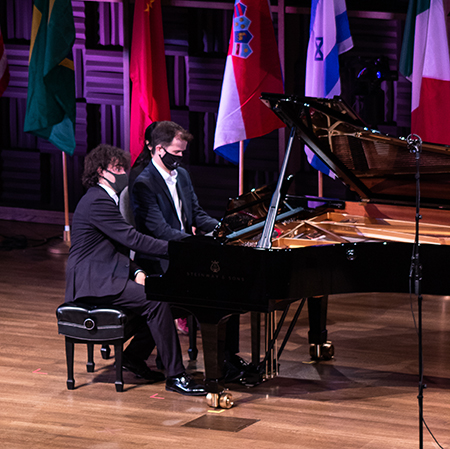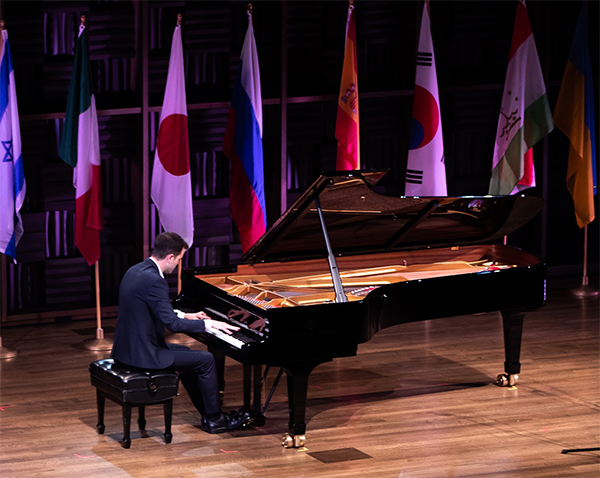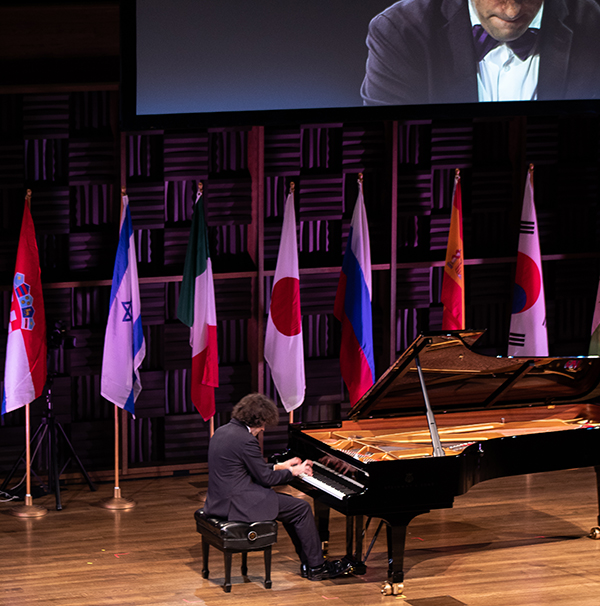by Daniel Hathaway

Rafael Skorka (32, from Israel) and Martín García García (24, from Spain) set their strong individual personalities aside and joined their four hands together for an illuminating performance of Schubert’s Fantasie in f that was remarkable for its single mindedness and expressive nuances. Every detail fell neatly into place, but there was no sense that these pianists knew the piece too well. Instead, they made a standard work sound newly minted, its surprises freshly discovered.
The afternoon ended with a standing ovation after the Schubert. It began with a varied program played by Skorka, who earned his bachelor’s degree at the Jerusalem Academy of Music before coming to Cleveland to work with Sergei Babayan at CIM, where he received both his Master’s and Doctor of Musical Arts degrees.
He chose to lead off with his choice from the required list of virtuosic arrangements of popular tunes by Alexei Kurbatof: Leonard Bernstein’s “America” from West Side Story, a piece he might have tossed off in a blaze of notes and glissandos. Instead, he looked deeper and found hidden nuances and made little tweaks to its rhythm that made his interpretation special.

Skorka completed his set with Brahms’ Seven Fantasies, written in 1892 and published as his Opus 116. They’re probably not meant to be heard in one sitting, but the pianist made a convincing suite out of its combination of capriccios and intermezzi, pieces not so often heard in any context.
After a ten-minute pause, García García, who participated in PianoCleveland’s Virtu(al)oso Competition last summer and is pursuing a master’s in piano at the Mannes School in New York, sat down at the Steinway without any preliminary fussing and launched into a memorable performance of Schubert’s Wanderer Fantasie. He brings a big, warm personality and an attractive level of showmanship to his playing, which gave the piece an unusually high profile.

At the end, he lip-synched to Freddie Mercury’s Bohemian Rhapsody (while playing Kurbatof’s faithful arrangement of the 1975 song from Queen’s A Night at the Opera), but if any of his selections lacked words, he seemed eager to improvise them on the spot.
Published on ClevelandClassical.com August 1, 2021.
Click here for a printable copy of this article


